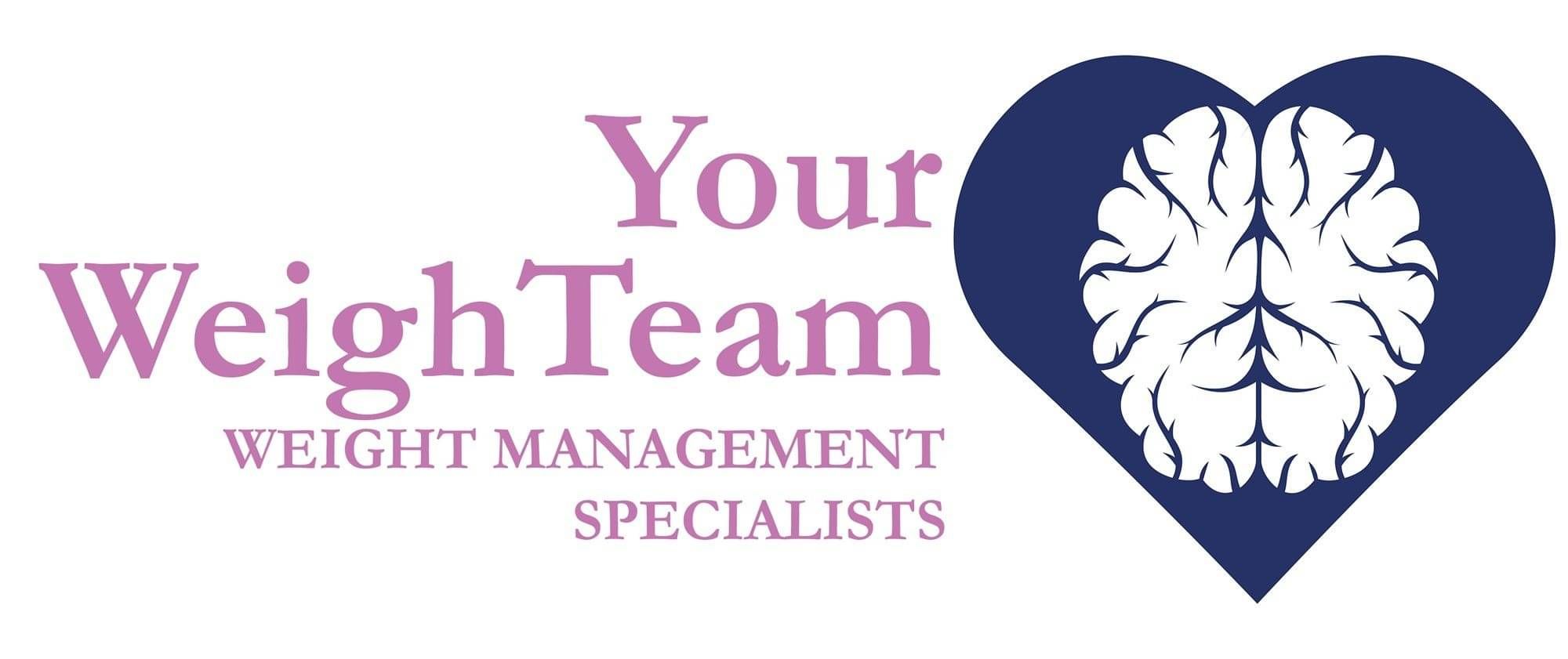Molly’s life changed three and a half years ago when she lost 62kg after having weight loss surgery.
By Kate Berridge, Your Weigh Team (formerly Tiaki Whaiaro)
RNcP MN (Hons)
Molly went from being the biggest person in every room to ‘normal’.
She now wears a size 14 dress. She walks every day for 45 minutes.
But she’s not feeling as good as she was in the first year after her weight loss. Slowly but surely over the last year, she’s gained 5kg. She’s always tired, and there’s a low-level feeling of anxiety in her gut that never goes away.
She’s strictly watching what she eats, but can’t seem to stop herself from snacking throughout the day.
There’s a little voice in her head whispering, ‘you’re going back to where you were before’.
Molly makes an appointment to see me, and here's what we discover.
1. YOU MIGHT BE MISSING SOMETHING IMPORTANT
My appointment with Molly starts with a standard nursing assessment, looking at how she did with her surgery, how she’s doing with her food and eating behaviour now, and how she’s feeling about life.
The first thing I find – and this is quite common – is that she’s not taking a multivitamin.
She tried hard in the first year after surgery, but they always made her feel nauseous. Eventually, even the smell of the multivitamin made her gag, so she just stopped. She felt fine, and it didn’t seem like a big deal.
However, blood tests show she's very low in iron and B12. Both are critical to your body’s function, and they also have a big impact on your mood.
Other micronutrients that can affect you similarly include B6, vitamin D, zinc and molybdenum.
It’s very easy to tip into malnutrition when you’ve had weight loss surgery. Your stomach is only a third of the size of a ‘standard’ stomach. You only have a fraction of the digestive juices you had before, which means you can’t pull all the nutrients out of the food you do manage to eat.
Low level malnutrition isn’t good for your body long-term. In the short-term, it has a subtle but powerful effect on your brain. It contributes to your body’s sense of urgency about food, so your brain sends out hunger hormones, which is why a lot of people find they get strong urges to ‘graze’ through the day.
It’s also common to feel tired, depressed, and to have a low ‘hum’ of anxiety that Molly tells me just never seems to go away, even if she does meditation or slow breathing.
While she is likely to have anxiety, it’s very possible it’s also a physiological signal from her body because it knows it’s not getting the nutrients it needs.
WHAT CAN YOU DO?
While I do a lot of work on the mental and emotional aftercare and support, my first job is to be your nurse. That means I’m assessing all your needs, including the physical factors.
Get a blood test every 12 months
Most GPs have little experience with weight loss surgery patients, so you may need to advocate for yourself, to be tested this regularly, and also to get the specific tests you need.
You need to ask for a full screening, which looks at more factors than what a doctorwould typically order for a patient who hasn't had weight loss surgery.
This is a comprehensive list of what you need and when.
Alternatively, the Your Weigh Team prescribing clinic can order blood tests for you.
Multivitamin
You need a specific multivitamin designed for people who’ve had metabolic bariatric surgery.
You can’t use the ones you get at a chemist because what you need isn't ‘normal’.
A metabolic bariatric-specific multivitamin has far higher levels of critical nutrients such as B12 and calcium.
They're also specially designed to be absorbed in a surgically affected stomach, which has significantly lower levels of stomach acids. You can't absorb nutrients as you did before - metabolic bariatric vitamins contain ingredients that help it be better absorbed.
The options (chews, gummies) are also designed to be more palatable so they're easier to swallow and aren't as likely to cause nausea. If you still get nausea, we recommend cutting them up into pieces to eat throughout the day, with a meal.
Protein
Protein is your priority. It should be about 50% of every meal or around 60-80g a day. Ideally it should be in the form of whole foods, like meat, fish, and beans.
If you aren’t getting enough, you can use protein powders mixed in with a drink, smoothie, or in something like yoghurt.
A protein bar is another option if you get stuck, but these shouldn't be a regular part of your diet.
2. YOU WILL GAIN WEIGHT
Everyone’s weight fluctuates. People who’ve never struggled with their weight will still move around a number by a few kilograms throughout their lives. For some, it can be a lot, especially after pregnancy.
When you have surgery, you’re very unlikely to stay at the lowest weight you reach in the 8-14 months afterwards.
If we take normal fluctuations of a few kilograms up and down out of the equation, research on weight loss surgery patients tells us that most face a slow, incremental gain as the years go by.
That’s due to a lot of factors. There can be hormonal issues, health conditions, effects from medication, or maybe perimenopause or menopause.
But you face another challenge if you’ve spent years living in a bigger body before surgery.
Your physiology isn’t the same as someone who’s never been in a bigger body. Your brain is going to fight to get the body back to what it sees as a ‘safe’ weight – your highest weight. It does this by becoming more efficient, saving every tiny calorie it can.
It also produces stronger, compelling urges that make you feel hungry – hunger signals that other people (who've never lived in a bigger body) don’t get.
These days we call it ‘food noise’ and it can be very loud. It can also be sneaky – one moment, you’re fine, the next you’re eating, and you’re not even sure how you got there.
Another common cause of regain is stress. As we age, we face new challenges around our health, the health and care of parents or other relatives, finances, recessions, job responsibilities and more.
Many of these things have come together for Molly to create a vicious, distressing cycle:
Physiological hunger and stress = eating to soothe emotions = weight gain = more stress = more eating = more weight gain
WHAT CAN YOU DO?
The research for my Master of Nursing, backed up by 20 years of practical experience with patients, found that the skills you need for good self-care don’t just appear when you lose weight.
If you regulated (soothed) or numbed (repressed) your emotions using food before surgery, you’re going to go back to that method when the effects of surgery wear off.
The process of learning new ways to soothe yourself takes time, and you'll never be perfect at it. Often, you’ve got to start from scratch.
It starts with some simple-sounding skills:
curiosity
compassion (so, so much compassion)
There are lots of amazing resources that can teach you how to be more compassionate towards yourself. I highly recommend anything by Kristen Neff and Chris Germer, and also Tara Brach.
However, it’s one thing to read about compassion or do a course.
It’s another to have someone model it to you and guide you through your specific triggers in real time.
My work with patients has found that they tend to progress faster with some help around learning the skills of curiosity and compassion because it’s specific to their needs. My job is to help you see blind spots and add skillsets that you may not have thought of (or know about).
It's also not linear. You slowly learn both curiosity and compassion, and they build on each other as you go along.
Often, I also see signs of ADHD or autism and can recommend ways to move toward a possible diagnosis.
3. YOU’LL DEFAULT TO THE DIET BEHAVIOURS YOU HAD BEFORE
For Molly, a complex mix of factors has built itself into a big ball of depression and anxiety. She’s feeling distressed and gaining weight.
She thinks she’s done the biggest, most dramatic thing she can do in terms of controlling her weight: surgery.
Now that it's ‘not working’ (as she sees it), she believes the only option she has is to do what she did before surgery: return to the controlling diet behaviour she's used since she was young.
The problem is, this type of ‘control’ doesn’t work. If it did, no-one would ever be in a bigger body. We'd all just yell at ourselves and not eat.
Most of my patients tell me how their attempts to control their eating started when they were young, usually in their early teens, but some even earlier. Many talk of diet restrictions enforced by their parents when they were small children, sometimes because of poverty, but more often due to to the rules of 'diet culture': skinny is good, fat is bad.
If you’ve spent your whole life trying to control your eating, there’s probably also a highly self-critical inner voice judging you constantly. Believing its stories, that you're bad, lazy or stupid, is a lot of stress and shame to carry around, which again, triggers hunger and cravings in an effort to soothe or numb these emotions.
We know diets don’t work for long-term weight loss. But diet culture is so ingrained in the western world’s belief system, that we all – me included – find ourselves hearing that judging voice and trying to tighten our grip on our behaviour.
WHAT CAN YOU DO?
It’s hard to change these responses and you need a multifaceted approach.
One of the most important things to learn is embodiment (the ability to feel an emotion in your body).
Becoming embodied leads to a space – a moment of pause where you can choose your response to a trigger like a craving or a big emotion, versus an automatic reaction to eat.
This isn’t a perfect process. There will be triggers that are so big, you go into reaction mode and eat, and that’s completely understandable.
But let’s say that you can learn skills and strategies so that in 5/10 situations, you can soothe yourself without using food, when previously you'd have done it 10/10 times.
That’s a lot of processed emotions that aren’t stewing away inside you, and a lot left uneaten.
I’m extremely privileged to walk alongside people as they find new ways to live their lives. There’s an old saying that a problem shared is a problem halved and in my work, it’s very true.
Please don't hesitate to ask for help. We all get stuck. You might think weight loss surgery or medications were your 'last chance' but one of the biggest lessons that patients find is that there are an infinite number of ways to move forward and enjoy life.
My goal is to empower and guide you to find the ways that will work best for you.



